
The Johns Hopkins Hospital (JHH) is the teaching hospital and biomedical research facility of Johns Hopkins School of Medicine in Baltimore, Maryland. Founded in 1889, Johns Hopkins Hospital and its school of medicine are considered to be the founding institutions of modern American medicine and the birthplace of numerous famed medical traditions, including rounds, residents, and house staff. Several medical specialties were founded at the hospital, including neurosurgery by Harvey Williams Cushing and Walter Dandy, cardiac surgery by Alfred Blalock, and child psychiatry by Leo Kanner. Johns Hopkins Children's Center which serves infants, children, teens, and young adults aged 0–21, is attached to the hospital.
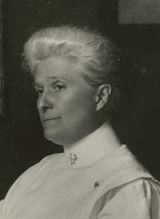
Anna Caroline Maxwell, was a nurse who came to be known as "the American Florence Nightingale". Her pioneering activities were crucial to the growth of professional nursing in the United States.

Uniformed Services University of the Health Sciences (USU) is a health science university of the U.S. federal government. The primary mission of the school is to prepare graduates for service to the U.S. at home and abroad as uniformed health professionals, scientists and leaders; by conducting cutting-edge, military-relevant research; by leading the Military Health System in key functional and intellectual areas; and by providing operational support to units around the world.
The University of Texas Health Science Center at Houston (UTHealth) is a public academic health science center in Houston, Texas, United States. It was created in 1972 by The University of Texas System Board of Regents. It is located in the Texas Medical Center, the largest medical center in the world. It is composed of six schools: McGovern Medical School, The University of Texas MD Anderson Cancer Center UTHealth Graduate School of Biomedical Sciences, UTHealth School of Dentistry, Cizik School of Nursing, UTHealth School of Biomedical Informatics and UTHealth School of Public Health.

The Johns Hopkins Bloomberg School of Public Health is the public health graduate school of Johns Hopkins University, a private research university in Baltimore, Maryland. As the second independent, degree-granting institution for research in epidemiology and training in public health, and the largest public health training facility in the United States, the school is ranked first in public health in the U.S. News & World Report rankings and has held that ranking since 1994.
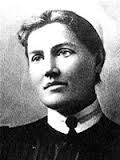
Isabel Adams Hampton Robb (1859–1910) was an American nurse theorist, author, nursing school administrator and early leader. Hampton was the first Superintendent of Nurses at the Johns Hopkins School of Nursing, wrote several influential textbooks, and helped to found the organizations that became known as the National League for Nursing, the International Council of Nurses, and the American Nurses Association. Hampton also played a large role in advancing the social status of nursing through her work in developing a curriculum of more advanced training during her time at the Johns Hopkins School of Nursing.

Lavinia Lloyd Dock was an American nurse, feminist, writer, pioneer in nursing education and social activist. Dock was an assistant superintendent at Johns Hopkins School of Nursing under Isabel Hampton Robb. She founded what would become the National League for Nursing with Robb and Mary Adelaide Nutting. Dock was a contributing editor to the American Journal of Nursing and authored several books, including a four-volume history of nursing and Materia Medica for Nurses, the nurse's standard manual of drugs for many years. In her later life, she also campaigned for social reform, particularly women's rights.
The Hopkins Center for Health Disparities Solutions (HCHDS), a research center within the Johns Hopkins Bloomberg School of Public Health, strives to eradicate disparities in health and health care among racial and ethnic groups, socioeconomic groups, and geopolitical categories such as urban, rural, and suburban populations.

Mary Adelaide Nutting was a Canadian nurse, educator, and pioneer in the field of hospital care. After graduating from Johns Hopkins University's first nurse training program in 1891, Nutting helped to found a modern nursing program at the school. In 1907, she became involved in an experimental program at the new Teachers College at Columbia University. Ascending to the role of chair of the nursing and health department, Nutting authored a vanguard curriculum based on preparatory nursing education, public health studies, and social service emphasis. She served as president of a variety of councils and committees that served to standardize nursing education and ease the process of meshing nurse-profession interest with state legislation. Nutting was also the author of a multitude of scholarly works relating to the nursing field, and her work, A History of Nursing, remains an essential historic writing today. She is remembered for her legacy as a pioneer in the field of nursing, but also her activist role in a time where women still had limited rights.
Lisa A. Cooper is an American internal medicine and public health physician who is the Bloomberg Distinguished Professor of Equity in Health and Healthcare at Johns Hopkins University, jointly appointed in the Johns Hopkins School of Medicine, Johns Hopkins School of Nursing and in the departments of Health, Behavior and Society, Health Policy and Management; Epidemiology; and International Health in the Johns Hopkins Bloomberg School of Public Health. She is the James F. Fries Professor of Medicine in the Division of General Internal Medicine, Director of the Johns Hopkins Center for Health Equity, and Director of the Johns Hopkins Urban Health Institute. Cooper is also a Gilman Scholar and a core faculty member in the Welch Center for Prevention, Epidemiology, and Clinical Research. She is internationally recognized for her research on the impact of race, ethnicity and gender on the patient-physician relationship and subsequent health disparities. She is a member of the President’s Council of Advisors on Science and Technology (PCAST). In 2007, she received a MacArthur Fellowship.
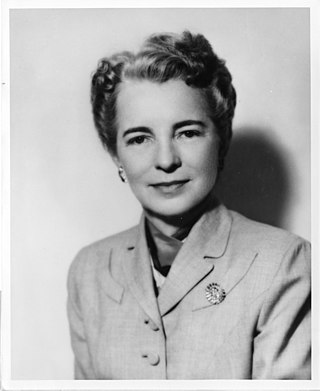
Lucile Petry Leone was an American nurse who was the founding director of the Cadet Nurse Corps in 1943. Because the Nurse Corps met its recruiting quotas, it was not necessary for the US to draft nurses in World War II. She was the first woman and the first nurse to be appointed as Assistant Surgeon General of the United States Public Health Service.

The history of nursing in the United States focuses on the professionalization of Nursing in the United States since the Civil War.
Miyong Kim is a Korean-American nurse researcher and academic. She is the La Quinta Centennial Endowed Professor in the School of Nursing at the University of Texas at Austin.
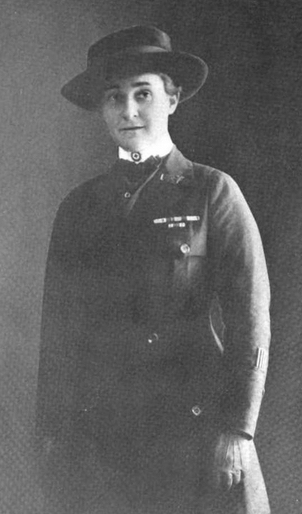
Alice Louise Florence Fitzgerald ARRC was an American nurse who served in Europe during and after World War I. She earned a Florence Nightingale Medal from the International Committee of the Red Cross in 1927, for her achievements.
Fannie Jean Gaston-Johansson (1938–2023) was an American professor of nursing and university distinguished professor at Johns Hopkins University. Gaston-Johansson researched health disparities, pain management, and coping strategies in women breast cancer patients. Gaston-Johansson was the first African-American woman tenured full professor at Johns Hopkins University. She previously served as a dean and full professor at University of Gothenburg and an associate professor at University of Nebraska Medical Center. Gaston-Johansson was named a Living Legend of the American Academy of Nursing in 1995.
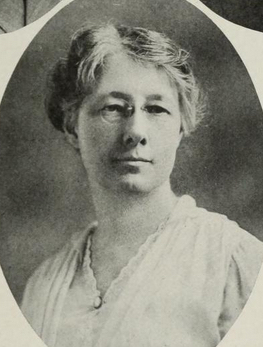
Georgia Marquis Nevins was an American nurse, nursing educator, and hospital administrator.
Martha Norton Hill is an American nurse. She was the Dean of the Johns Hopkins School of Nursing and Professor of Nursing, Medicine, and Public Health at Johns Hopkins University.
Sarah Loeb Szanton is an American nurse practitioner who focuses on geriatric nursing research. As of 2021, she is the Dean of the Johns Hopkins School of Nursing.
Diane M. Becker was an American nurse and public health scientist who researched cardiovascular disease prevention. She was a professor of medicine at the Johns Hopkins School of Medicine.











